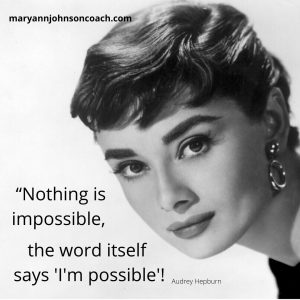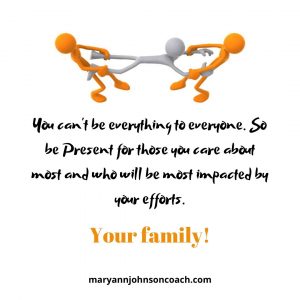 I saw an insurance commercial in which the adults (portrayed by kids) were being treated like children by the insurance company. They felt helpless, undervalued, and frustrated. When I saw this commercial, I, like most of you, could relate to those feelings. At the end of the commercial, a rival insurance company helped a woman (portrayed by a child) with her needs. She stood there smiling, feeling good.
I saw an insurance commercial in which the adults (portrayed by kids) were being treated like children by the insurance company. They felt helpless, undervalued, and frustrated. When I saw this commercial, I, like most of you, could relate to those feelings. At the end of the commercial, a rival insurance company helped a woman (portrayed by a child) with her needs. She stood there smiling, feeling good.
Then I had a second thought. Why would they use children to illustrate what all of us have felt as adults? It’s because this IS how children are frequently treated. They are not seen, heard. They don’t feel they matter.
What Does Being on the List Look Like
Let me give you an example of what it looks like when we treat our children in a way that leaves them feeling like the adults in this commercial, helpless, undervalued and frustrated.
One day I was sewing, and the project had a deadline. I’m pretty good but sewing would be on the bottom 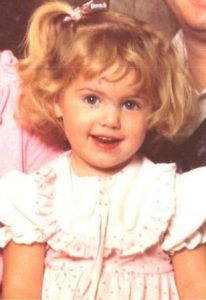 of my relaxing and fun things to-do list. I was feeling some pressure. My 3-year-old daughter, Marie, kept coming into the sewing room and interrupting me. This and the sewing were wearing on my nerves. I was ready to spank her. After all, she was bugging me, and she could see perfectly well that I was busy! I decided if she interrupted me again, I was going to swat her.
of my relaxing and fun things to-do list. I was feeling some pressure. My 3-year-old daughter, Marie, kept coming into the sewing room and interrupting me. This and the sewing were wearing on my nerves. I was ready to spank her. After all, she was bugging me, and she could see perfectly well that I was busy! I decided if she interrupted me again, I was going to swat her.
Of course, you know what happened. She came in again and I was ready to carry out my intention. Then I had a thought, “Why not hug her instead!” It wasn’t my thought! Remember, I had a firm intention to swat her. It took me by such surprise that I STOPPED what I was doing.
I turned my chair away from the sewing machine and I looked at my daughter. I picked her up and I hugged her tight. I hugged her for 15-20 seconds. I said, “Marie I LOVE you!” Then I put her down and off she went as happy as a clam.
She didn’t come back. Why! Think about that insurance commercial I described and it will be clear. When they were being ignored the people in the commercial were frustrated and feeling undervalued. The woman at the end of the commercial was smiling and feeling good because someone cared. She was on the list. She felt valued.
This is what happened to Marie. All she wanted was to be on the list, to be valued. Our children want to be on our list, and in our busy lives we sometimes erase them off. Oh, we cook meals, clean and maintain order and manage our family, but our children and our relationship with them are not on the list. We often don’t make time to let them know that we see them, hear them, and that they matter.
5 tips to help you let your kids know they have a place on your list.
1. Take a hard look at your calendar – We all have good things on our calendar. However, are there so many goods that there isn’t room for the best – time with our children? Can you pare down the classes, lessons, team activities, and community and church responsibilities? Time at home matters to kids. Ask yourself, “What happens if I/we don’t do this?” If you’re doing a task out of guilt or habit, take it off your calendar. Figure out what your priorities are and pursue those. Something must give.
2. Involve the kids – I know, I know, it’s simply easier, faster, and more efficient to do things by yourself. But there are advantages to including your children a few times a week. Gardening together, folding laundry as a group, and tidying up the yard as a unit are ways to kill two birds with one stone. If you make it fun it won’t seem like work, it will seem like a family activity.
3. Turn off your digital devices, ditch technology – just for a while. Have technology-free moments every day. For example, have a TV, computer or no phone hour just before bed or while eating dinner. When you’re willing to let go of technology for even short amounts of time, you’ll be surprised at how much time you can open up for the family.
4. Make a date with your family and then keep it. When things are planned, they tend to happen. When they aren’t the world crowds in, and they get put off. If you have a family evening once a week then consider that sacred time. If you decide to have a game night, don’t let anything else interfere. If you plan to walk one evening a week, make sure it happens. It doesn’t have to cost money, take a lot of time or preparation but you do need to be consistent. That will go a long way to saying, “You are on my list.”
5. Realize you won’t get everything done. A to-do list is unending. It will never get done. Laundry is forever, so is cleaning and cooking. The yard always needs to be mowed and snow must be shoveled. So, lighten up a bit. Let some things go, short term, and make space for your family.
Please share
 Who Are The Na’vi?
Who Are The Na’vi?

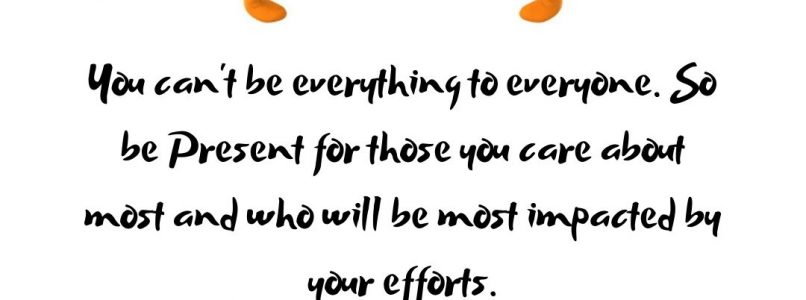
 I saw an insurance commercial in which the adults (portrayed by kids) were being treated like children by the insurance company. They felt helpless, undervalued, and frustrated. When I saw this commercial, I, like most of you, could relate to those feelings. At the end of the commercial, a rival insurance company helped a woman (portrayed by a child) with her needs. She stood there smiling, feeling good.
I saw an insurance commercial in which the adults (portrayed by kids) were being treated like children by the insurance company. They felt helpless, undervalued, and frustrated. When I saw this commercial, I, like most of you, could relate to those feelings. At the end of the commercial, a rival insurance company helped a woman (portrayed by a child) with her needs. She stood there smiling, feeling good. of my relaxing and fun things to-do list. I was feeling some pressure. My 3-year-old daughter, Marie, kept coming into the sewing room and interrupting me. This and the sewing were wearing on my nerves. I was ready to spank her. After all, she was bugging me, and she could see perfectly well that I was busy! I decided if she interrupted me again, I was going to swat her.
of my relaxing and fun things to-do list. I was feeling some pressure. My 3-year-old daughter, Marie, kept coming into the sewing room and interrupting me. This and the sewing were wearing on my nerves. I was ready to spank her. After all, she was bugging me, and she could see perfectly well that I was busy! I decided if she interrupted me again, I was going to swat her.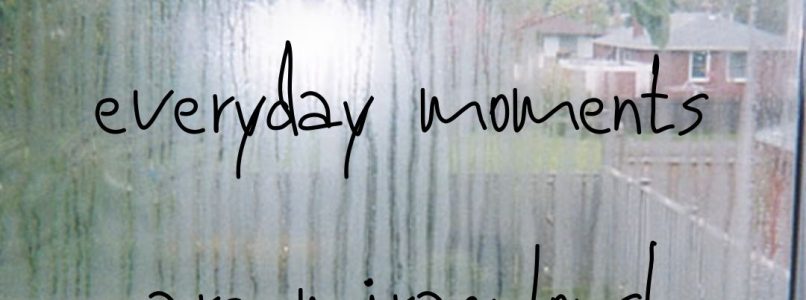
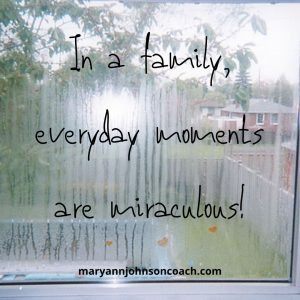 The windows are fog-covered from soup steam and the air smells of baking bread. It’s cold outside on this wintry Montana day. I hear the children clattering through the gate and up the back steps, coming home from school. “Don’t bang the screen door”.
The windows are fog-covered from soup steam and the air smells of baking bread. It’s cold outside on this wintry Montana day. I hear the children clattering through the gate and up the back steps, coming home from school. “Don’t bang the screen door”.
 On a mature dating site commercial, a giddy woman said, “It’s just like being back in high school.” YIKES! I liked high school. It turned out okay. In my yearbook, I’m listed as “The most typical girl”. But I wouldn’t want to go back!
On a mature dating site commercial, a giddy woman said, “It’s just like being back in high school.” YIKES! I liked high school. It turned out okay. In my yearbook, I’m listed as “The most typical girl”. But I wouldn’t want to go back!
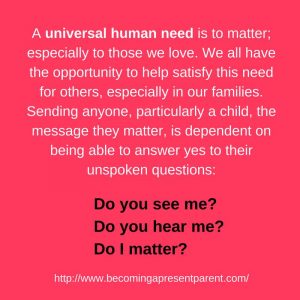 When we moved to Laurel, Montana over 3 decades ago it was a jolt. We had lots of little kids and we didn’t know anyone. We had no family in Montana and no one we knew had ever lived there.
When we moved to Laurel, Montana over 3 decades ago it was a jolt. We had lots of little kids and we didn’t know anyone. We had no family in Montana and no one we knew had ever lived there.
 Sometimes
Sometimes 
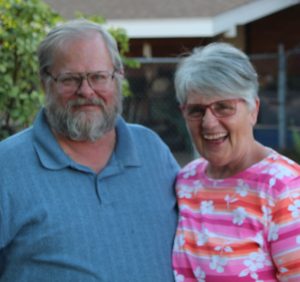

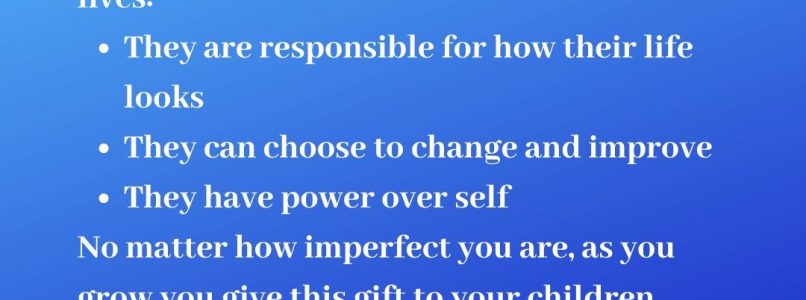
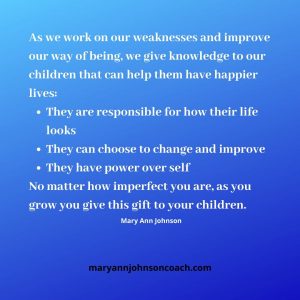 I came from a family of complainers. I can still hear my grandmother complaining to my grandfather about all kinds of things. I can hear my aunts and their complaints. After all, we used to hide under the kitchen table, which had a cloth that reached to the floor and listen in on their private conversations. I, in turn, became a complainer. When I listen to my sisters and cousins, I hear the echoes of those long dead and their complaints. It’s a family tradition, of sorts.
I came from a family of complainers. I can still hear my grandmother complaining to my grandfather about all kinds of things. I can hear my aunts and their complaints. After all, we used to hide under the kitchen table, which had a cloth that reached to the floor and listen in on their private conversations. I, in turn, became a complainer. When I listen to my sisters and cousins, I hear the echoes of those long dead and their complaints. It’s a family tradition, of sorts.
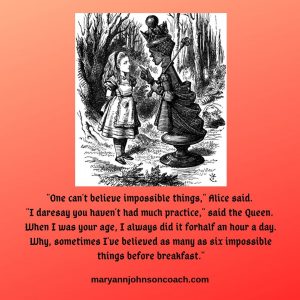 As a middle-aged mother, with struggling children, it was hard to believe in anything but the dissolution of my family. I felt like a failure. My family didn’t look anything like I planned. Where were the calm and peaceful nights sitting around the fireplace popping corn? Where were the bedside chats filled with laughter and love? Where were the days of working and playing together?
As a middle-aged mother, with struggling children, it was hard to believe in anything but the dissolution of my family. I felt like a failure. My family didn’t look anything like I planned. Where were the calm and peaceful nights sitting around the fireplace popping corn? Where were the bedside chats filled with laughter and love? Where were the days of working and playing together?